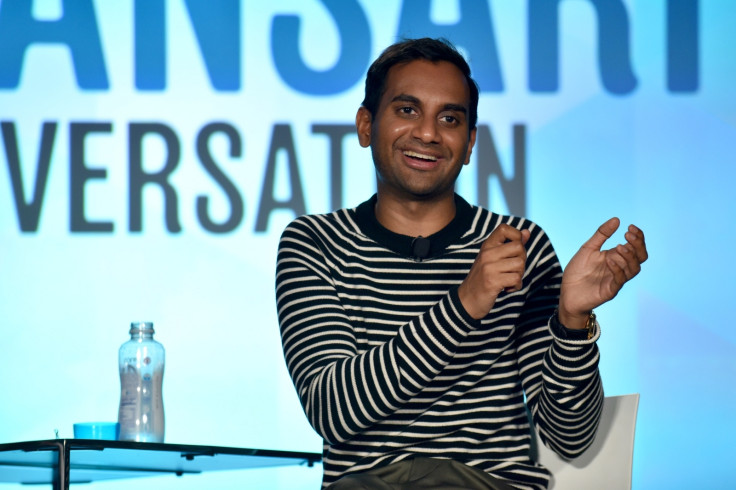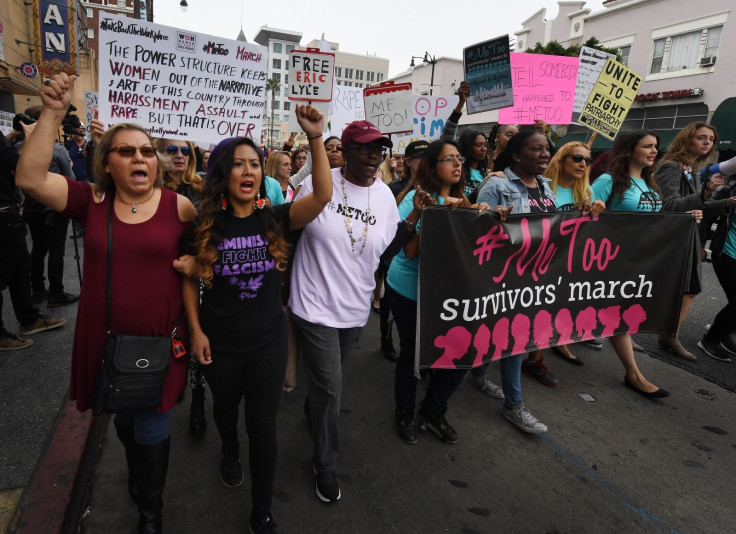Watch US news anchor slam Aziz Ansari accuser on live TV
KEY POINTS
- The #MeToo movement has experienced a backlash in recent days.
- Comedian Aziz Ansari stars in his self-written show Master of None.
- An anonymous woman described a sexual encounter they had in detail.
A global backlash against aspects of the #MeToo movement hit US TV screens on Monday night (15 January) as news host Ashleigh Banfield addressed an 'open letter' to the woman who went public about a sexual encounter with Aziz Ansari.
An anonymous woman, described only as a Brooklyn photographer, gave an interview with the Babe website, in which she described a play-by-play account of a date with Ansari that took place last year.
Described by one female critic as nothing more than "3,000 words of revenge porn", the account has the potential to derail Ansari's career.
It may prove to be a watershed moment for the #MeToo movement, which began as a means of exposing an entrenched culture of sexual violence and harassment in the US entertainment industry but has transformed into something altogether different.
Last week 100 French women co-signed a letter in Le Monde newspaper arguing that the campaign had turned into a "puritanical ... wave of purification", adding: "rape is a crime, but trying to seduce someone, even persistently or cack handedly, is not."
The Brooklyn photographer's complaint against Ansari centres around an unpleasant sexual encounter in which he did not read her "nonverbal cues" while they got intimate in his apartment.
Writing in the New York Times, Bari Weiss said the complaint amount to: "Put in other words: I am angry that you weren't able to read my mind."
On 15 January it was Crime & Justice anchor Ashleigh Banfield's turn to weigh in on the episode.
"I'm sorry you had a bad date," the former CNN star, 50, said before taking the anonymous woman to task for going to the press with her story.

"Let's take a moment to reflect on what you claim was the 'worst night of your life.' You had a bad date. Your date got overly amorous. After protesting his moves, you did not get up and leave right away. You continued to engage in a sexual encounter.
"By your own clear description, this was not a rape, nor was it a sexual assault. By your own description, your sexual encounter was unpleasant. It did not send you to the police. It did not affect your workplace or your ability to get a job," Banfield continued.
"So, I have to ask you, what exactly was your beef – that you had a bad date with Aziz Ansari? Is that what victimised you to the point of seeking a public conviction and a career-ending sentence against him? Is that truly what you thought he deserved for your night out?"
Let me be completely clear: if you were sexually assaulted you should go to the police right now. If you were sexually harassed and your bad date, because of his actions, mitigated your ability to do your job, you should definitely speak up, and loud. Because that's happened to me too – and it stinks."
"But if you just had an unpleasant sexual experience then you should have gone home"

"What you have done, in my opinion, is appalling," Banfield said. "You have chiseled away at a movement that I, along with all my sisters in the workplace, have been dreaming of for decades, a movement that has finally changed an oversexed professional environment that I, too, have struggled through at times over the last 30 years."
"You had an unpleasant date," she added. "And you didn't leave. That is on you. And all the gains that have been achieved on your behalf and mine are now being compromised by allegations that are reckless and hollow."




















